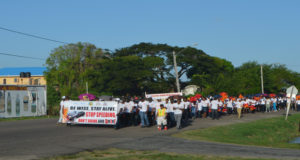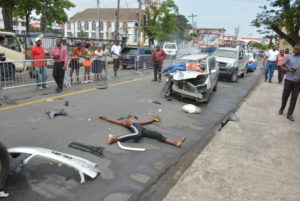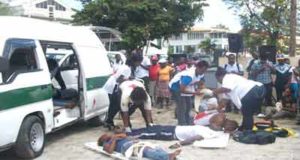
 The World Day of Remembrance for Road Traffic Victims (WDR) is commemorated on the third Sunday of November each year – to remember the many millions killed and injured on the world’s roads, together with their families, friends and many others who are also affected. It is also a Day on which we thank the emergency services and reflect on the tremendous burden and cost of this daily continuing disaster to families, communities and countries, and on ways to halt it.
The World Day of Remembrance for Road Traffic Victims (WDR) is commemorated on the third Sunday of November each year – to remember the many millions killed and injured on the world’s roads, together with their families, friends and many others who are also affected. It is also a Day on which we thank the emergency services and reflect on the tremendous burden and cost of this daily continuing disaster to families, communities and countries, and on ways to halt it.
Road deaths and injuries are sudden, violent, traumatic events. Their impact is long-lasting, often permanent. Each year, millions of newly-injured and bereaved people from every corner of the world are added to the countless millions who already suffer. The cumulative toll is truly tremendous.
The grief and distress experienced by this huge number of people is all the greater because many of the victims are young, because many of the crashes could have and should have been prevented and because Governments’ and society’s response to road deaths and injury and to bereaved and injured victims is often inadequate, unsympathetic, and inappropriate concerning a loss of life or quality of life.
This special Remembrance Day is, therefore, intended to respond to the great need of road crash victims for public recognition of their loss and suffering. It has also become an important tool for Governments and those who work to prevent crashes or respond to the aftermath, since it offers the opportunity to demonstrate the enormous scale and impact of road deaths and injuries and the urgent need for action.
Many varied commemorative events are held on each World Day, or on the days before or after.
From 1995, road victim organisations under the umbrella of the European Federation of Road Traffic Victims (FEVR) observed this Day together – first as European Day of Remembrance, but soon as World Day when Non-Governmental Organisations (NGOs) from Africa, South America and Asia who were associated members of FEVR joined the commemoration.
Therefore, FEVR is the creator and first owner of the World Day of Remembrance. From 2000 onwards, the Pope and other

religious leaders remembered road victims worldwide on the third Sunday of November, calling it ‘World Day’.10 years after it began – on October 26, 2005; the World Day was adopted by the United Nations General Assembly as “the appropriate acknowledgement for victims of road traffic crashes and their families”.
This year, it is observed under the theme “Road have Stories”. In Guyana, our roads have many stories. Stories of speeding, hit and runs, blatant disregard for traffic rules among a whole host of other stories. It is imperative that we create safe roads because of the number of unnecessary accidents. Drinking and driving is, by far, our most challenging story to deal with and is also the cause of numerous accidents.
It is time we start using our roads more cautiously. Do not be afraid to ask the driver to slow dow

n because your life matters.(Times Sunday Magazine)



